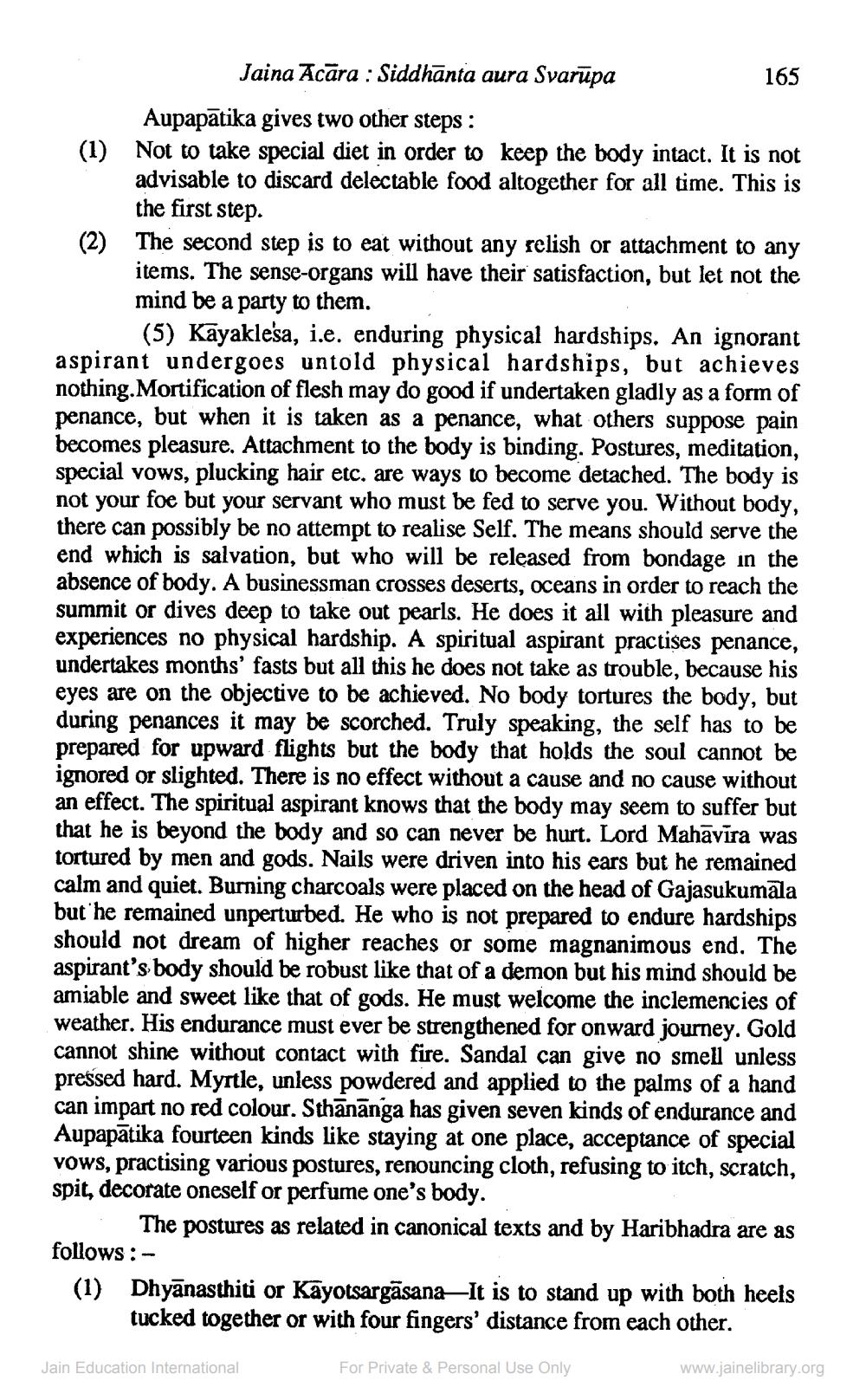________________
165
(2)
Jaina Acara : Siddhānta aura Svarūpa Aupapātika gives two other steps: Not to take special diet in order to keep the body intact. It is not advisable to discard delectable food altogether for all time. This is the first step. The second step is to eat without any relish or attachment to any items. The sense-organs will have their satisfaction, but let not the mind be a party to them.
(5) Kayaklesa, i.e. enduring physical hardships. An ignorant aspirant undergoes untold physical hardships, but achieves nothing. Montification of flesh may do good if undertaken gladly as a form of penance, but when it is taken as a penance, what others suppose pain becomes pleasure. Attachment to the body is binding. Postures, meditation, special vows, plucking hair etc. are ways to become detached. The body is not your foe but your servant who must be fed to serve you. Without body, there can possibly be no attempt to realise Self. The means should serve the end which is salvation, but who will be released from bondage in the absence of body. A businessman crosses deserts, oceans in order to reach the summit or dives deep to take out pearls. He does it all with pleasure and experiences no physical hardship. A spiritual aspirant practises penance, undertakes months' fasts but all this he does not take as trouble, because his eyes are on the objective to be achieved. No body tortures the body, but during penances it may be scorched. Truly speaking, the self has to be prepared for upward flights but the body that holds the soul cannot be ignored or slighted. There is no effect without a cause and no cause without an effect. The spiritual aspirant knows that the body may seem to suffer but that he is beyond the body and so can never be hurt. Lord Mahāvīra was tortured by men and gods. Nails were driven into his ears but he remained calm and quiet. Burning charcoals were placed on the head of Gajasukumala but he remained unperturbed. He who is not prepared to endure hardships should not dream of higher reaches or some magnanimous end. The aspirant's body should be robust like that of a demon but his mind should be amiable and sweet like that of gods. He must welcome the inclemencies of weather. His endurance must ever be strengthened for onward journey. Gold cannot shine without contact with fire. Sandal can give no smell unless pressed hard. Myrtle, unless powdered and applied to the palms of a hand can impart no red colour. Sthānanga has given seven kinds of endurance and Aupapātika fourteen kinds like staying at one place, acceptance of special Vows, practising various postures, renouncing cloth, refusing to itch, scratch, spit, decorate oneself or perfume one's body.
The postures as related in canonical texts and by Haribhadra are as follows:(1) Dhyānasthiti or Kayotsargāsana-It is to stand up with both heels
tucked together or with four fingers' distance from each other.
Jain Education International
For Private & Personal Use Only
www.jainelibrary.org




